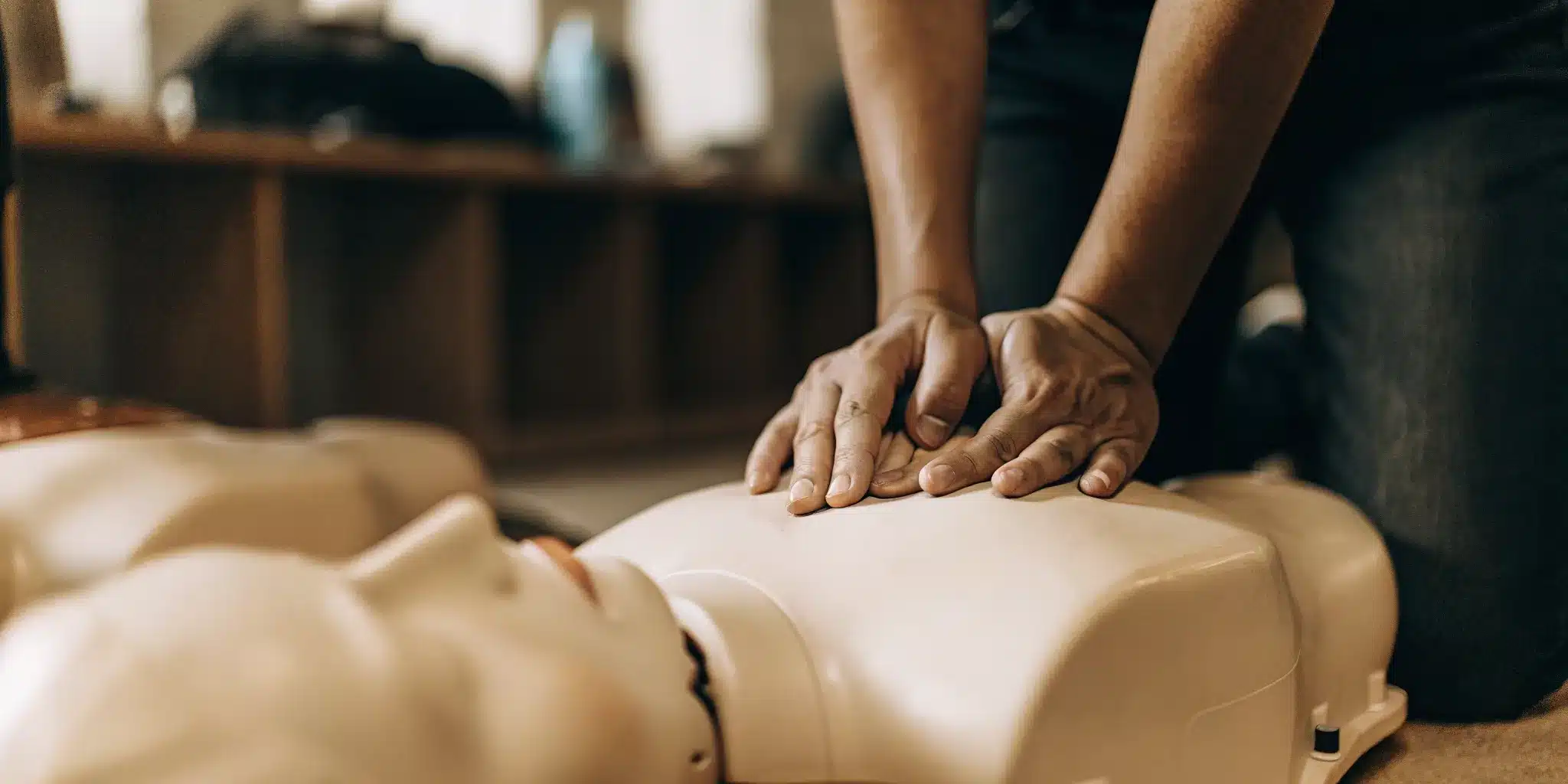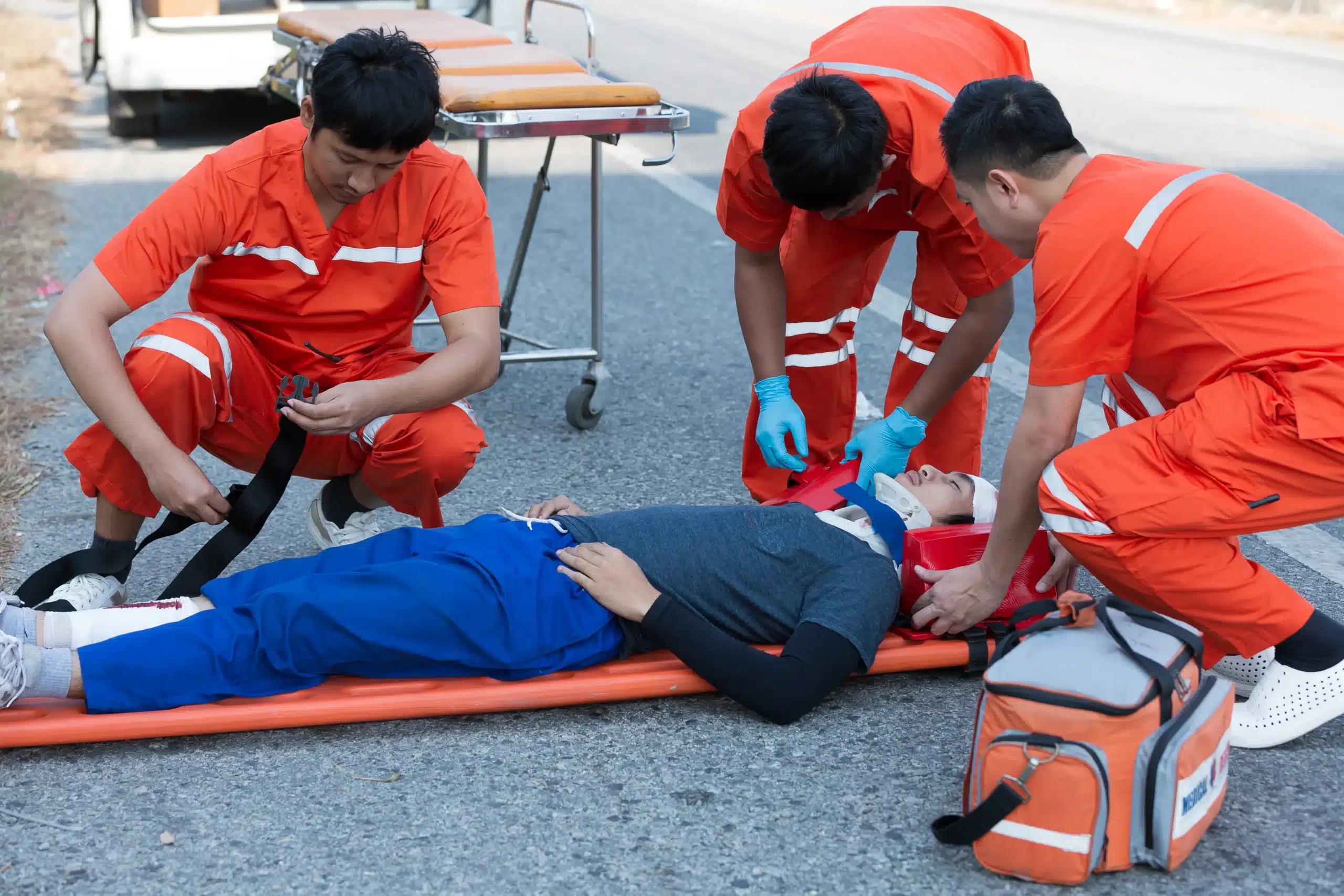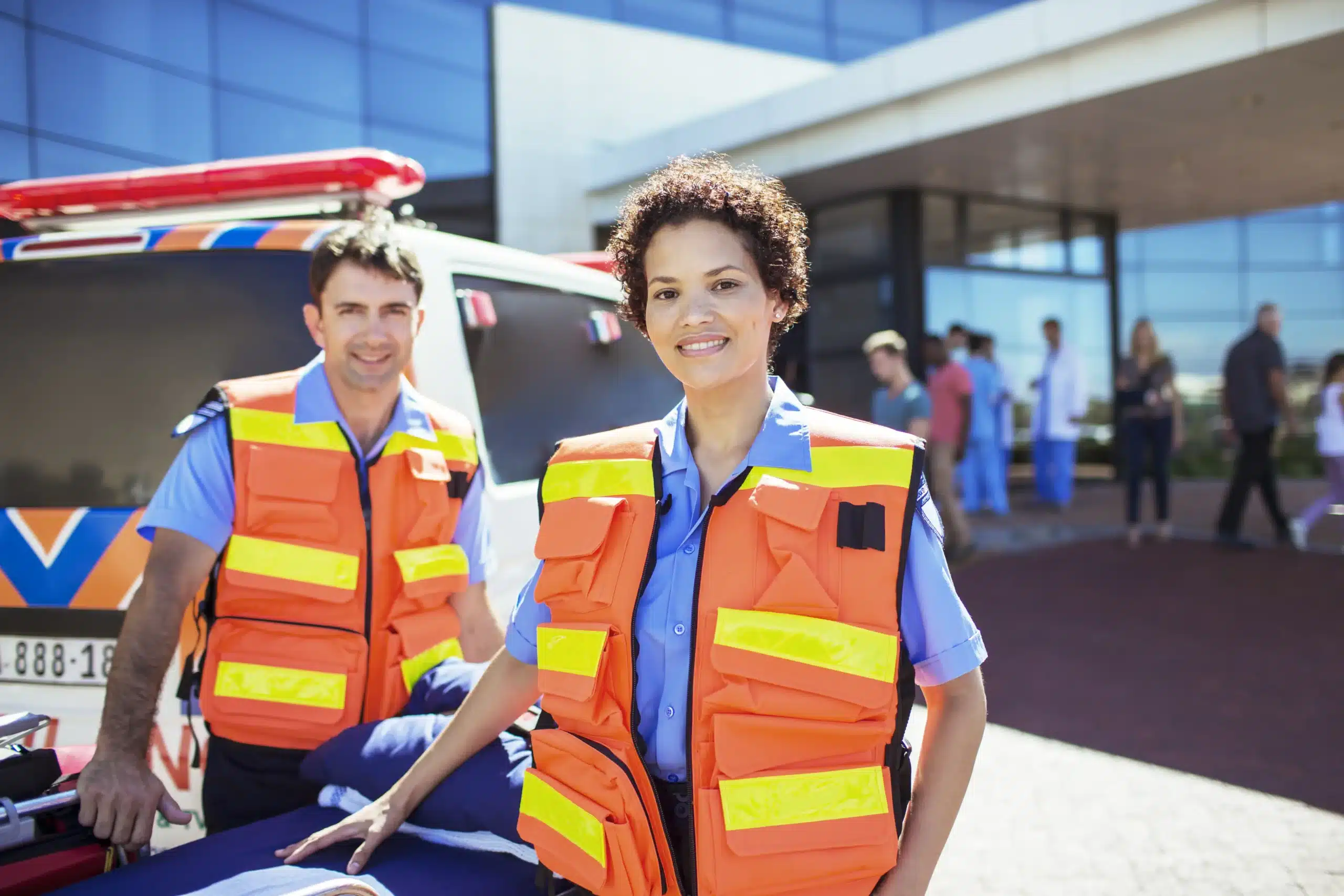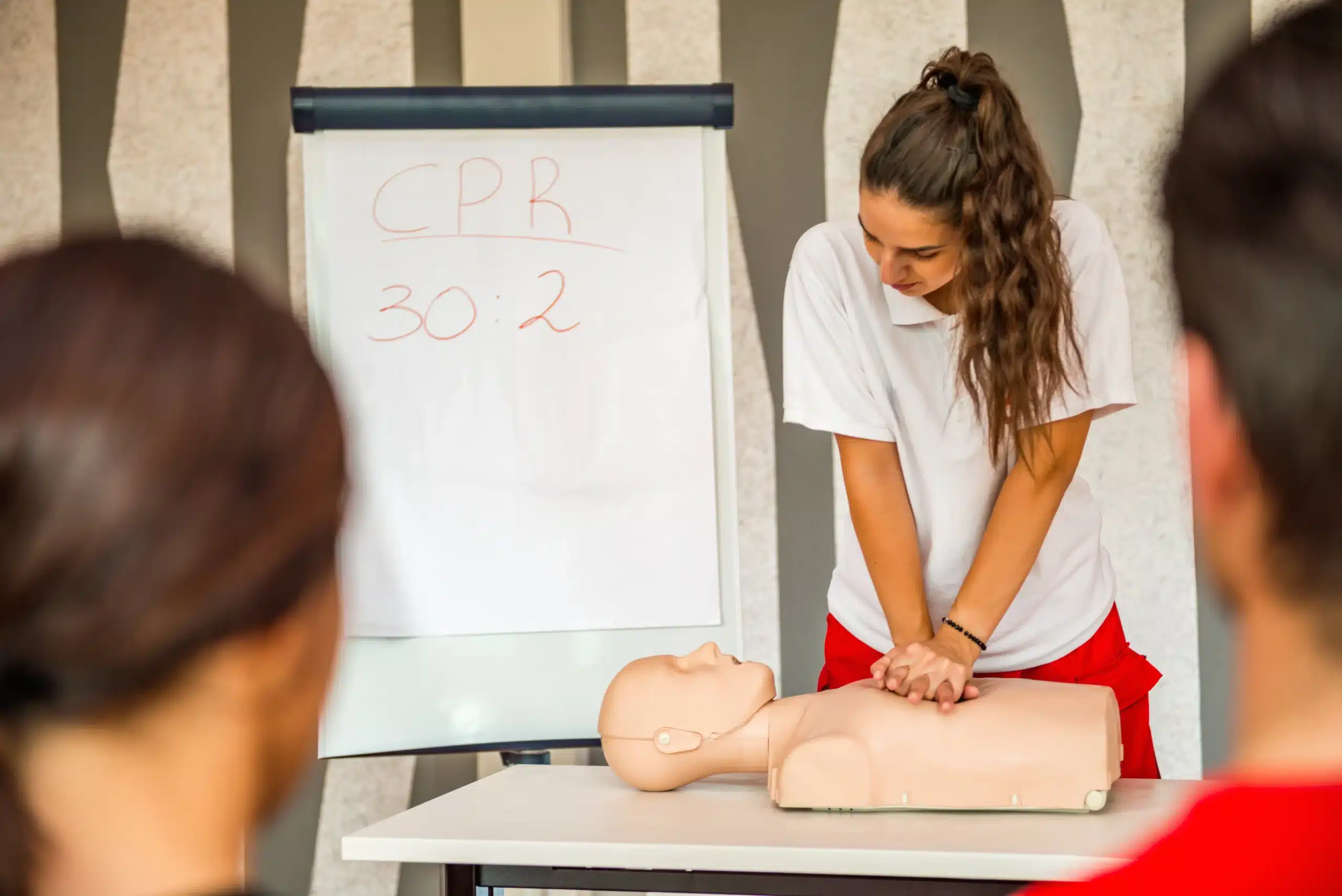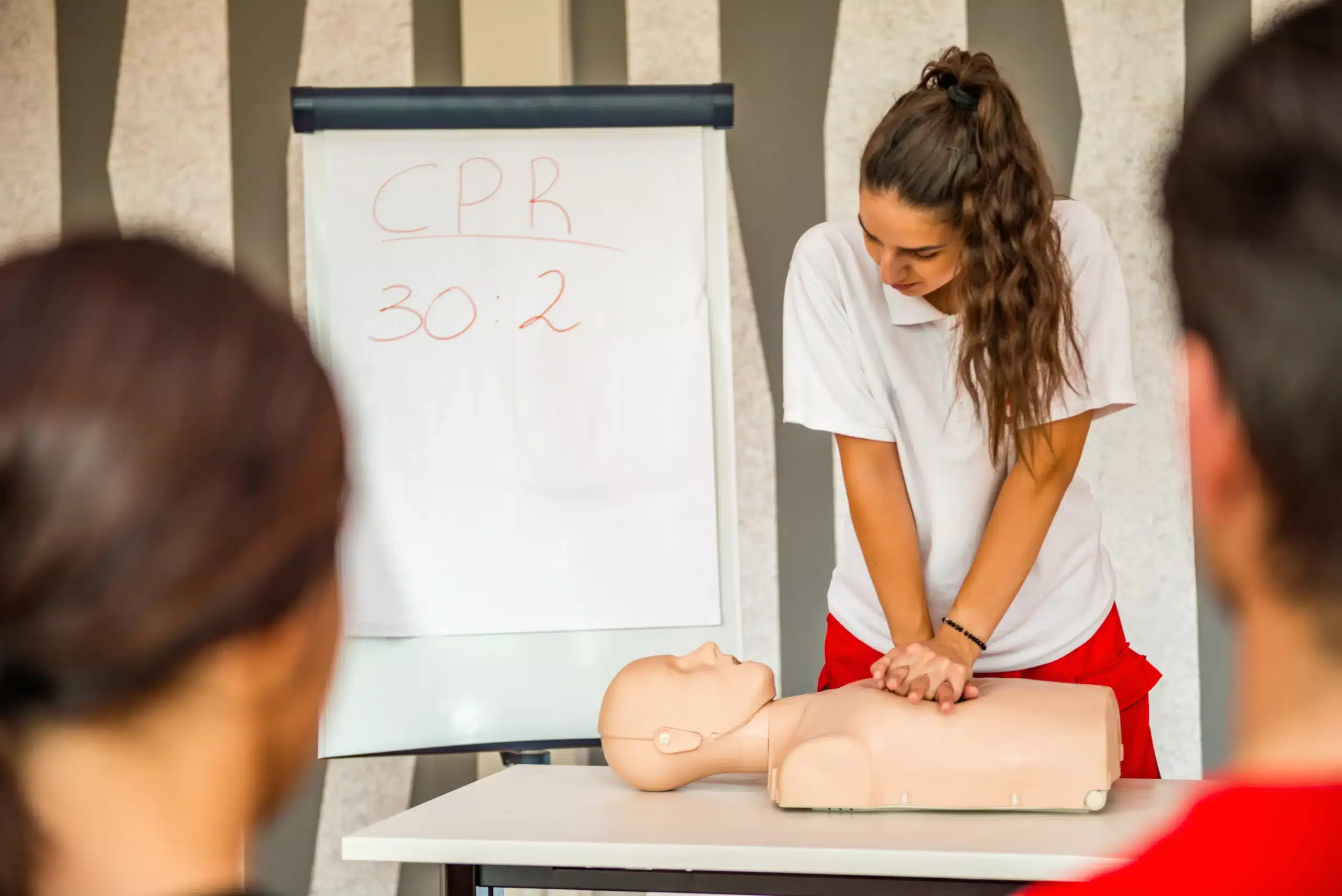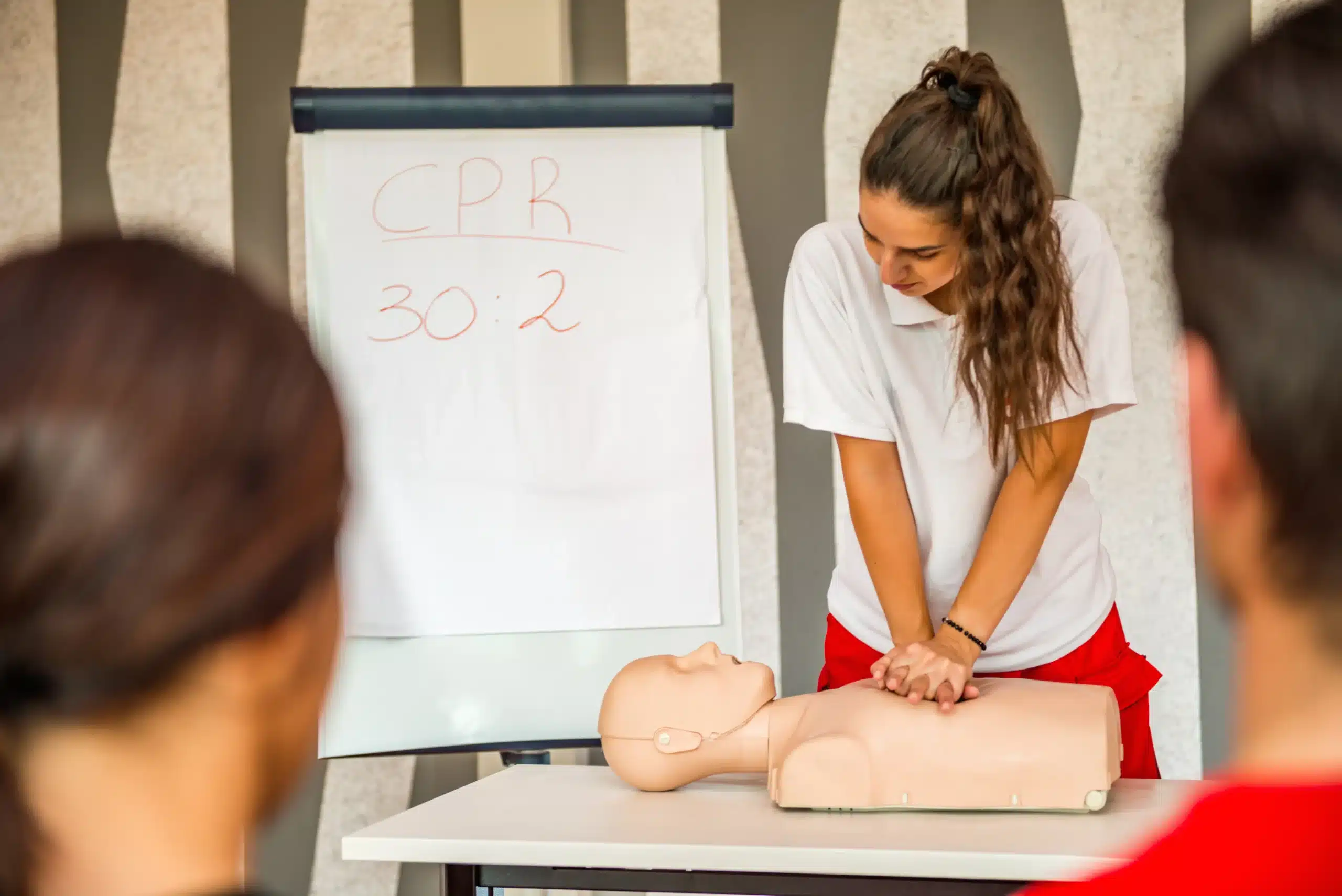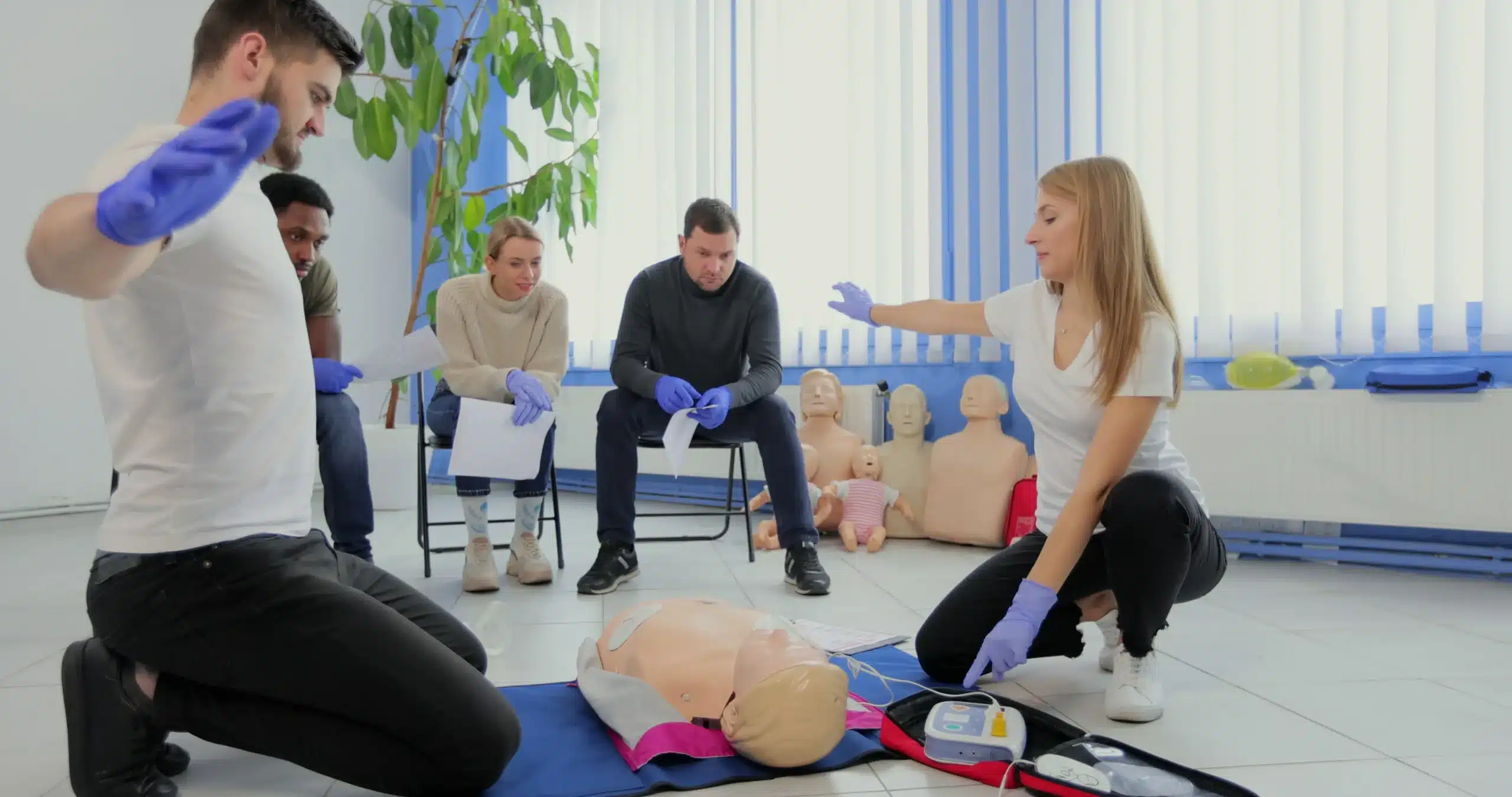In a medical emergency, seconds can matter. Knowing CPR can make you a vital link in the chain of survival. If you’re looking for CPR classes in Concord, this guide is for you. We’ll cover everything from the basics of CPR to the different certification levels available, including BLS, ACLS, and PALS. We’ll also discuss the costs of CPR classes in Concord, the certification process, and how to find a class that fits your busy schedule. Plus, we’ll address common concerns about learning CPR and provide helpful resources to prepare you for your training. Empower yourself with the life-saving skills of CPR.
Key Takeaways
- CPR knowledge empowers you to save lives: Equipping yourself with CPR skills enables effective responses to medical emergencies, significantly increasing survival rates from cardiac arrest. Find a course that suits your needs, whether you’re a healthcare provider or preparing for everyday emergencies.
- Concord provides various CPR training options: Explore a range of courses in Concord, from basic CPR and first aid to advanced certifications like ACLS and PALS. Compare providers, consider costs, and ask about group discounts.
- Regular practice maintains CPR proficiency: Keep your skills sharp through consistent practice. Review steps, rehearse procedures, and consider a practice manikin to build confidence for real-life emergencies.
What is CPR and Why is it Important?
CPR, or cardiopulmonary resuscitation, is a life-saving technique used when someone’s heart stops beating. It involves chest compressions and rescue breaths to circulate blood and oxygen to the brain and other vital organs until professional medical help arrives. The American Red Cross offers various CPR training courses, highlighting CPR as a vital life skill.
Learning CPR is crucial because it significantly improves the odds of survival from cardiac arrest. Concord CPR Classes notes that effective bystander CPR can double or even triple a person’s survival rate. Quick action in these situations is critical. The Australian Training Institute also emphasizes that learning CPR equips individuals to respond effectively during emergencies.
CPR Classes in Concord: What Are Your Options?
Choosing the right CPR class depends on your specific needs and goals. Whether you’re a healthcare professional or want to be prepared for emergencies, Concord offers various training options. Let’s explore some of the most common CPR certifications.
Basic Life Support (BLS)
BLS certification is the cornerstone for healthcare providers. These BLS courses teach essential skills like recognizing life-threatening emergencies, performing CPR, using an AED, and relieving choking. The focus is on providing high-quality CPR quickly and safely.
Advanced Cardiovascular Life Support (ACLS)
ACLS certification goes beyond basic CPR. Designed for healthcare professionals involved in managing cardiovascular emergencies, ACLS training covers advanced interventions, team dynamics, and effective communication during critical situations. This course builds upon BLS knowledge and focuses on the comprehensive management of cardiac arrest and other serious cardiovascular events.
Pediatric Advanced Life Support (PALS)
Specifically for healthcare providers working with infants and children, PALS certification focuses on the specialized skills needed to respond to pediatric emergencies. This training emphasizes recognizing and treating respiratory and cardiac arrest in young patients, giving healthcare professionals the confidence to act quickly and effectively.
First Aid and CPR
Combining essential first aid knowledge with CPR skills, these comprehensive courses are valuable for both healthcare professionals and the general public. Learning first aid empowers you to respond to various emergencies, from minor injuries to life-threatening situations. This combined training provides a well-rounded approach to emergency preparedness.
CPR Class Costs in Concord
CPR classes are an investment in life-saving skills, and thankfully, there are options for every budget. Understanding what goes into pricing can help you find the right course at the right price.
What Affects CPR Class Prices?
Several factors influence the cost of CPR classes in Concord. The most significant is the type of certification you’re pursuing. Basic Life Support (BLS) certification, for example, typically costs less than Advanced Cardiovascular Life Support (ACLS) due to the difference in course content and required hours. BLS covers fundamental CPR skills, while ACLS delves into more advanced techniques for healthcare professionals. Similarly, Pediatric Advanced Life Support (PALS), designed for pediatric care, also has a different pricing structure.
The organization providing the training also plays a role. Different training centers have different overhead costs, instructor fees, and equipment expenses, all reflected in their course fees. For instance, a smaller, locally owned business might offer more competitive pricing than a large national organization. Location matters too. CPR class costs in Concord may differ slightly from those in nearby cities like Walnut Creek or Pleasant Hill, even for the same type of certification. Finally, the course format can influence the price. In-person classes, which provide hands-on practice and direct interaction with an instructor, sometimes have different pricing than online or blended learning options.
Group Discounts
Looking to train your team or a group of friends? Many CPR training providers in Concord offer group discounts. This can significantly reduce the per-person cost, making it more affordable for organizations, businesses, or even families learning together. Contact providers directly to inquire about group rates and minimum participant requirements. It’s a smart way to equip everyone with these essential skills while saving money.
CPR Certification: Process and Validity
What Happens During CPR Training?
CPR training blends hands-on practice with theoretical learning to prepare you for real-life emergencies. You’ll learn the American Heart Association (AHA) guidelines for Basic Life Support (BLS). Depending on your chosen course, you might also explore Advanced Cardiovascular Life Support (ACLS) and Pediatric Advanced Life Support (PALS). Instructors will cover essential skills like chest compressions, rescue breaths, and how to use an Automated External Defibrillator (AED). Concord CPR Classes offers a range of courses to suit different needs. Many training centers provide various learning formats, including in-person, online, and blended learning, allowing you to find a CPR class that fits your schedule and learning style.
How Long Does Certification Last?
After successfully completing your CPR training, you’ll receive a certification card, typically valid for two years. This CPR certification is widely recognized by employers and is often required for healthcare professionals and those in emergency response roles. Some organizations also offer convenient digital certificates accessible anytime, complete with a unique ID and QR code for easy verification. Remember to renew your certification before it expires to maintain your qualifications.
Find a CPR Class That Fits Your Schedule
Finding a CPR class that meshes with your busy schedule shouldn’t be a hurdle. Luckily, there are several ways to get certified, whether you prefer traditional in-person learning or the flexibility of online courses.
In-Person Classes: Evenings and Weekends
Many organizations understand that weekday schedules can be packed. To accommodate this, they offer in-person CPR classes during evenings and weekends. Concord CPR Classes offers a range of courses—including BLS, ACLS, PALS, First Aid, and CPR—designed to fit various schedules. This makes it easier for people with work or family commitments to acquire these essential life-saving skills. For an even more affordable option, check out their group discounts. Their convenient location serves those in and around Walnut Creek, Concord, and Pleasant Hill.
Online and Blended Learning
If your schedule demands more flexibility, online or blended learning CPR courses might be the perfect fit. These formats allow you to learn the material at your own pace, often through interactive modules and videos. The American Red Cross, for example, offers blended learning that combines online coursework with in-person skill sessions. This hybrid approach lets you complete the coursework whenever and wherever it’s convenient, while still getting the hands-on practice necessary for real-world scenarios. This blended learning style is a great way to become CPR certified without sacrificing your existing commitments.
Choosing a CPR Trainer in Concord
Finding the right CPR trainer is crucial for a positive and effective learning experience. Here’s what to consider:
Accreditation and Instructor Qualifications
First, confirm the training provider is accredited by a recognized organization like the American Heart Association (AHA) or the American Red Cross. This ensures the curriculum meets national standards and your certification will be widely accepted. Check that instructors hold current certifications and have experience teaching CPR. For example, Safety Training Seminars offers AHA-certified courses, guaranteeing high-quality training from qualified instructors.
Class Size and Hands-On Practice
A smaller class size offers more individual attention from the instructor and ample opportunities for hands-on practice. This is essential for developing the muscle memory and confidence needed to perform CPR effectively. Most students need 1–3 hours to complete a course, including practical exercises. Instructors should be skilled in adapting their teaching to different learning styles and student backgrounds.
CPR Training Providers in Concord
Several excellent CPR training providers serve the Concord area:
Concord CPR Classes
Concord CPR Classes offers various courses, including BLS, ACLS, PALS, First Aid, and CPR, catering to both healthcare professionals and the general public. Their focus on affordability and high-quality instruction makes them a popular choice. For medical professionals seeking recertification, they also offer the AHA’s RQI program. Learn more about their BLS, ACLS, and PALS certifications. They also offer group discounts and an RQI program.
Safety Training Seminars
Safety Training Seminars is a woman-owned business and an AHA Training Center with a long history of providing CPR training in Concord. They are known for their excellent customer service and readily available course information.
CPR Training Center
The CPR Training Center provides a range of AHA-certified courses, including CPR, BLS, ACLS, and PALS. Their focus on quality training prepares participants to handle various emergency situations.
American Red Cross
The American Red Cross offers CPR classes in various formats—in-person, online, and blended learning—allowing flexibility for different schedules and learning preferences.
Common CPR Training Concerns
It’s normal to have a few questions or hesitations before signing up for a CPR class. Let’s address some common concerns:
I’m Afraid of Making Mistakes
Many people worry about doing something wrong during a real emergency. It’s natural to feel apprehensive about the responsibility. However, remember that any attempt at CPR is better than none. The goal is to circulate oxygenated blood until professional help arrives. Even if you’re not perfect, your actions can still make a difference. Check out this article on busting common CPR myths to ease your mind. Instructors create a supportive learning environment where you can practice and ask questions without judgment.
I Don’t Have Much Time
We get it—life is busy. But CPR training is more accessible than you might think. Many courses are designed to be efficient and fit around your schedule. Some classes take just a few hours, and you can find options for evening and weekend sessions. Concord CPR Classes offers a variety of courses to fit your needs. Learning CPR is a valuable investment that doesn’t require a huge time commitment. For more on CPR class structure and scheduling, see these CPR FAQs.
Why Do I Need CPR?
Learning CPR empowers you to help someone during a medical crisis. Effective bystander CPR can significantly improve survival rates after cardiac arrest. Think of it as a vital skill that could save a life—maybe even the life of someone you love. Our blog post on common CPR myths and truths dives deeper into the importance of CPR training and its impact on survival rates. Knowing CPR can give you confidence and peace of mind, knowing you’re prepared to act in an emergency.
Get Ready for Your CPR Class
Getting ready for your CPR class doesn’t have to be stressful. A little preparation beforehand can make all the difference in how much you get out of the training.
What to Bring
While specific requirements can vary, it’s always a good idea to check with your chosen CPR training provider about any materials you need to bring. Comfortable clothing is usually recommended so you can easily participate in the hands-on portions of the training. For example, Bay Area CPR suggests checking for pre-class communications for details on what to expect.
Pre-Course Resources
Taking a few minutes to review some resources before your class can be incredibly helpful. The American Heart Association offers a comprehensive FAQ section covering many aspects of CPR and first aid courses. You can also find helpful information on sites like CPR Professor, which addresses common questions like age requirements for CPR training. If you have specific questions about your upcoming class, don’t hesitate to contact your training provider directly.
Keep Your CPR Skills Sharp
Knowing CPR can give you the confidence to act in a medical emergency. But like any other skill, CPR requires regular practice to stay sharp. Refreshing your knowledge and technique can mean the difference between a hesitant response and effective action when it matters most.
Practice Techniques
Consistent practice is key to maintaining proficiency in CPR. Think of it like any other skill—the more you practice, the more confident and prepared you’ll be in a real emergency. Set aside time to review the steps, even if it’s just mentally rehearsing the process. You can practice chest compressions on a pillow or firm surface to get a feel for the correct depth and rhythm. Aim for compressions at least two inches deep at a rate of 100 to 120 compressions per minute, as recommended in our article on common CPR myths. Consider investing in a CPR manikin for more realistic practice at home. Even short, regular practice sessions will help solidify your skills and build your confidence.
Using CPR in Real Life
Knowing CPR is one thing, but using it effectively in a real-life emergency is another. Studies show that effective bystander CPR can double or triple survival rates in cardiac arrest cases. This underscores the importance of taking action immediately. One common misconception is that CPR alone can restart a stopped heart. While CPR is crucial for maintaining blood flow and oxygen to the brain, it’s essential to call 911 immediately. CPR buys valuable time until professional medical help arrives. Remember, calling emergency services is the first and most important step in any medical emergency, even while performing CPR. Your quick thinking and willingness to act can dramatically increase the chances of survival.
CPR Class FAQs
Thinking about taking a CPR class in Concord, CA? You probably have some questions. Here are answers to some common queries to help you prepare:
- How long do CPR classes take?
Most CPR courses take between one and three hours to complete. Many programs offer self-paced learning, allowing you to work through the material at a speed that suits you. This makes it easier to fit CPR training into your busy schedule.
- Do I have to finish the course all at once?
Not at all. Most CPR training programs are flexible and can be completed over several sessions. This is especially helpful for those juggling work, family, or other commitments.
- Is CPR certification required?
While certification isn’t always legally required, many employers and organizations prefer or require it. Certification from a recognized organization like the American Heart Association or the Red Cross demonstrates that you’ve received standardized, high-quality training. It’s definitely something to consider when choosing a CPR class.
- What happens during a CPR class?
CPR classes typically combine instruction with hands-on practice. You’ll learn the theory behind CPR and then practice your skills on mannequins. Most classes cover CPR for adults, children, and infants, and also include training on how to use an Automated External Defibrillator (AED). More information on AEDs can be found on the American Heart Association website.
- Can I take CPR classes online?
Yes, many organizations offer online or blended learning options. Blended learning usually involves completing the coursework online and then attending an in-person session to practice your skills. This format offers convenience and flexibility for many students. If you’re looking for fully online options, be sure to check if they meet any requirements your workplace or organization might have. Our RQI classes offer a blended learning approach.
- Why should I learn CPR?
Learning CPR can literally save lives. Effective bystander CPR can significantly increase the chances of survival for someone experiencing cardiac arrest. Equipping yourself with these skills can make you a vital link in the chain of survival. Learn more about the impact of CPR in our recent blog post on common CPR myths and truths.
Related Articles
- Why CPR is Important in Healthcare – Concord CPR Classes
- The Importance of Workplace CPR and First Aid Training
- Common CPR Myths and Truths Revealed – Concord CPR Classes
- CPR & First-aid Classes in Concord, CA – Concord CPR Classes
- BLS, ACLS, PALS, First-aid and CPR Courses in Concord, CA
CPR Class FAQs
Got questions about CPR training in Concord? Here are answers to some common queries:
- What’s the difference between BLS, ACLS, and PALS?
BLS (Basic Life Support) teaches fundamental life-saving skills like CPR, using an AED, and relieving choking. ACLS (Advanced Cardiovascular Life Support) is for healthcare professionals and covers advanced techniques for managing cardiovascular emergencies. PALS (Pediatric Advanced Life Support) focuses on the specific skills needed to respond to emergencies in infants and children.
- How much do CPR classes cost in Concord?
The cost varies depending on the type of certification (BLS, ACLS, PALS, etc.), the training provider, and whether you take a group class. Many providers offer discounts for groups, so it’s worth asking about. Concord CPR Classes has a low price guarantee and offers various courses to fit different budgets.
- How can I fit a CPR class into my busy schedule?
Many CPR training centers in Concord offer classes on evenings and weekends to accommodate busy schedules. Online and blended learning options are also available, allowing you to complete some or all of the coursework at your own pace.
- What if I’m nervous about performing CPR in a real emergency?
It’s completely normal to feel a little apprehensive. CPR classes provide a safe and supportive environment to practice your skills and build confidence. Remember, any attempt at CPR is better than none, and your actions can make a real difference.
- How can I make sure I’m choosing a reputable CPR trainer?
Look for training providers accredited by recognized organizations like the American Heart Association or the American Red Cross. Check instructor qualifications and look for classes with smaller sizes that allow for plenty of hands-on practice. Reading reviews and testimonials can also help you choose a quality provider.
This article was written for free by MEGA SEO.


